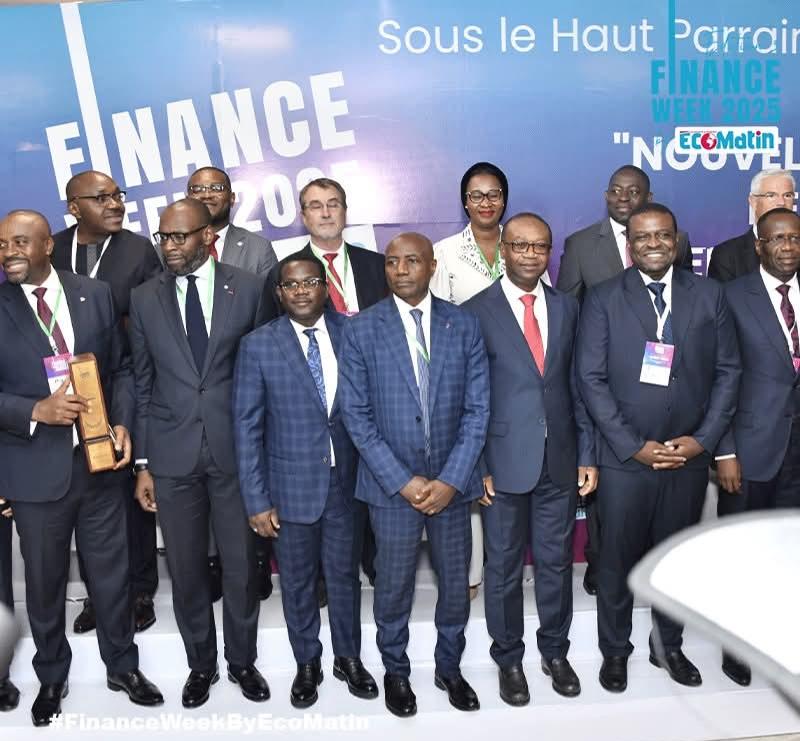The Governor of the Bank of Central African States, BEAC, Yvon Sana Bangui He made the call on Tuesday June 17 during the Finance Week 2025 event which took place in Yaoundé, bringing together key players in Central Africa’s financial and economic sectors for a full day of high-level discussions under the theme: “New Foreign Exchange Regulation and Economic Development in the CEMAC Area.”
Organized by the media outlet EcoMatin, the third edition of Finance Week was officially opened by Gilbert Didier Edoa, Secretary-General at the Ministry of Finance, who represented the Minister of Finance, Louis Paul Motaze. The event attracted prominent figures from across the CEMAC zone, including the Governor of the Bank of Central African States, BEAC, Yvon Sana Bangui, as well as senior bank managers, regulators, and economic policy experts. In his address, Governor Sana Bangui delivered a stark message about the region’s economic vulnerabilities.
He revealed that CEMAC countries collectively spend over 2,000 billion FCFA annually on the importation of petroleum products, an amount he described as a serious drain on regional finances. He argued that this excessive dependence on foreign products is holding back local development and urged CEMAC governments to invest more in local production capacities as a way of cutting down on unnecessary external spending. Sana Bangui also emphasized the critical role of the foreign exchange regulation introduced in 2019, noting that the reform has helped the region recover from years of instability and dangerously low reserves.
According to him, the regulation was a response to the triple economic shock that hit the sub-region between 2012 and 2016, and which had brought the region’s foreign reserves to an alarming low, barely enough to cover two and a half months of imports. The heads of state, he said, instructed the BEAC to revise and strictly apply a regulation that had long existed but was never enforced. More than five years later, Sana Bangui said the results are clear: the region has regained macroeconomic balance and is in a stronger financial position. However, he pointed out that more effort is still needed to ensure the full implementation of the regulation across all CEMAC countries.
He also called for the removal of inter-payment barriers between member states, which he believes will make trade more fluid within the region and promote economic diversification. Despite sharing a common currency, intra-CEMAC trade remains low, something the Governor said must change. Another highlight of the event was the first-time sponsorship of Finance Week by the Government of Cameroon, a development that was warmly welcomed by participants. In previous editions, the event had been supported at the ministerial level. Emile Fidieck, Director of EcoMatin and promoter of Finance Week, hailed the gesture as a strong show of commitment.
Fidieck noted that Finance Week has grown into a serious platform for regional dialogue, with representation from at least three other CEMAC countries at this year’s edition, alongside major stakeholders from the banking and financial sectors. The one-day event closed with a renewed call for regional cooperation, stronger regulation, and more support for local industry, as Central Africa continues its quest for a more resilient and self-reliant economic future.

